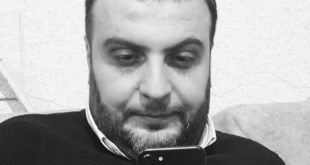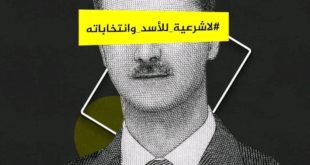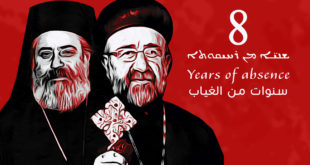By ANTHONY SHADID
ADO-World.org
10-January-2012
BEIRUT — In his first public address in months, President Bashar al-Assad of Syria lashed out on Tuesday at the Arab League for isolating his country, mocked Syrian rebels as traitors and vowed to subdue what he said was a foreign-backed plot against his country.
“We will defeat this conspiracy,” Mr. Assad declared in a speech that lasted nearly two hours.
The address repeated what has become a familiar refrain as Mr. Assad, as he faces his greatest challenge in more than 11 years of authoritarian rule. He pledged to crush what he has cast as terrorism and sabotage, while offering somewhat vague promises of reform. The tenor of his remarks, and his seeming show of confidence, underscored the irreconcilable nature of Syria’s crisis, which pits a protest movement demanding that Mr. Assad leave office against a government that rarely acknowledges their grievances.
Mr. Assad denied that his government had ordered security forces to shoot on anyone, despite a death toll that the United Nations says has spiraled beyond 5,000 in a relentless crackdown. He promised to hold a referendum on a new constitution in March, a step that seemed pale before the enormity of the crisis, one of the bloodiest of the uprisings that began to sweep the Arab world more than a year ago.
“When I rule, I rule because that it is the people’s will, and when I leave office, I leave because it is the people’s will,” Mr. Assad said.
Syria’s uprising seems to have moved into a more complicated phase in recent weeks. Protests have appeared to revive in some locations, and armed elements of the opposition have seemed emboldened by defections from the security forces.
Bombing attacks in Damascus, the capital, have killed scores of people over the past month. The government has said that foreign-backed terrorists were responsible; the opposition claims the government carried them out itself in a cynical effort to sully the protesters’ image.
In the latest turn, the Arab League on Tuesday denounced attacks on its observers in Syria, who arrived last month to monitor an agreement brokered by the league that was meant to end the violence. The league’s secretary-general, Nabil el-Arabi, said that both Assad loyalists and opponents had carried out attacks, but that in the end the Syrian government was “totally responsible” for failing to provide for the security of the mission.
Arab League officials said that in the worst incident so far, 11 observers were wounded on Monday in the port city of Latakia when their vehicles were attacked, in circumstances that remained unclear. The official news agency of Kuwait, which said that two of its observers were among the 11 wounded, described the assailants as “unknown protesters.”
In his speech, given at the University of Damascus and broadcast on Syrian television, Mr. Assad sought to cast the violence in the country as solely a question of terrorism, and he drew parallels between the bombings in Damascus and an Islamist revolt in Syria in the late 1970s and early 1980s, which threatened the hold on power of Mr. Assad’s father, Hafez, who ruled for three decades.
“There can be no let-up for terrorism — it must be hit with an iron fist,” he said. “The battle with terrorism is a battle for everyone, a national battle, not only the government’s battle.” Occasionally interrupted by applause, he added “victory is near.”
In some ways, the speech was a rhetorical settling of accounts. He ridiculed the Arab League, which suspended Syria’s membership in November, a humiliation for a country that has long seen itself as a fulcrum of the Arab world. In what his critics may view as arrogance, he dismissed Persian Gulf states as countries without culture. Qatar, in particular, has led the region’s efforts to further isolate Mr. Assad’s government.
“Countries can rent and import some history with their money, but money does not make nations and cultures,” Mr. Assad said, in a not very veiled reference to the Gulf emirates.
He mocked the protesters’ characterization of themselves as revolutionaries.
“This is not a revolution,” Mr. Assad said to an audience that chanted his name at the end of the speech. “Is it possible that he is a revolutionary and a traitor at the same time? This is impossible. If there were true revolutionaries, we would be walking together.”
Omar Idlibi, a spokesman for the Local Coordination Committees, an opposition group, called Mr. Assad’s speech another instance of the government’s obliviousness to the depth of the challenge it faces from protests and discontent in many regions.
“For 10 months, the regime is living in denial,” Mr. Idlibi said in a telephone interview. “They’re denying reality. He doesn’t want to recognize the changes that occurred until today.”
Source: New York Times
 Assyrian Democratic Organization ADO
Assyrian Democratic Organization ADO






